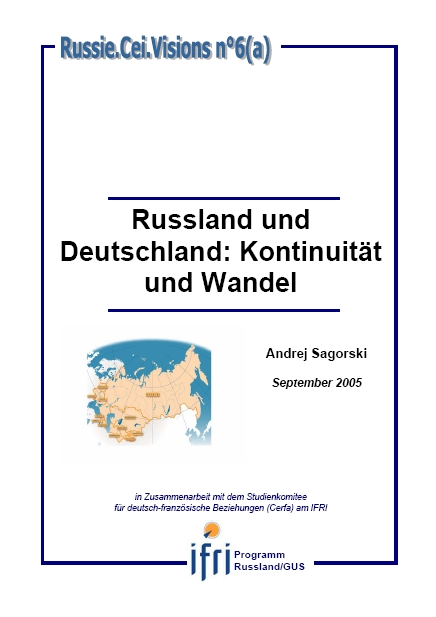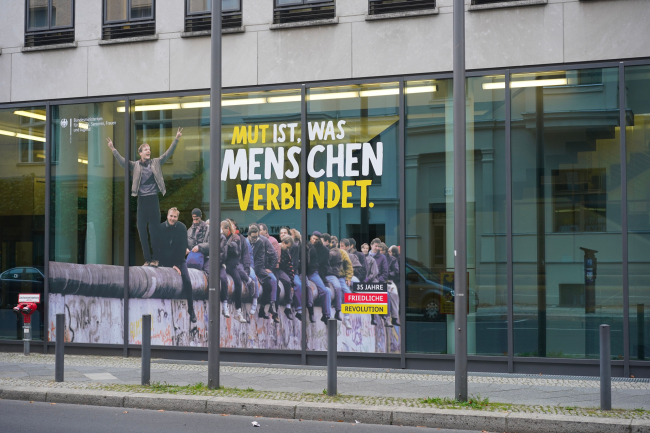Russland und Deutschland: Kontinuität und Wandel

Double Note du Cerfa, in cooperation with the Programm Russia/NEI
Note du Cerfa, 26 (a), September 2005 Hannes Adomeit, "Germany's Russian policy: the end of the "honeymoon"?"
Note du Cerfa, 26 (b), September 2005 Andreï Zagorski, "Russia and Germany: continuity and changes"
Over the past six years, a subdivided though very centralised mecanism for Russian-German cooperation has been forming. This mecanism has enabled many issues within bilateral relations to be resolved, but at the same time contributed to growing alienation between officiel attitudes and the mood in civil society in both countries. The "Schröder-Poutin era" in Russian-German relations is coming to end, and it stands to reason that the new government will make changes. However, these are likely to affect the style, and not the substance of relations with Russia.
Andrei Zagorsky, Deputy Director of the Moscow branch of the Konrad Adenauer Foundation.
Download the full analysis
This page contains only a summary of our work. If you would like to have access to all the information from our research on the subject, you can download the full version in PDF format.
Russland und Deutschland: Kontinuität und Wandel
Related centers and programs
Discover our other research centers and programsFind out more
Discover all our analysesThirty-five years after the fall of the Berlin Wall: what’s new in the East?
As we celebrate the 35th anniversary of the fall of the Berlin Wall on November 9, 2024, let’s start from the premise that the Berlin Wall did not “fall” on the night of November 9, 1989.
State Elections in Thuringia, Saxony and Brandenburg - Extreme Parties on the Rise?
The Alternative for Germany (AfD) became Germany's strongest political force in the regional elections in Thuringia and Saxony.

Ensuring a Fair Green Transition
“Humanity has opened the gates of hell”, stated UN Secretary-General António Guterres at the Climate Ambition Summit in September 2023, emphasising that we are currently on a path of global warming above 2.4°C or even 2.9°C.
Between „Strategic Autonomy” and „Zeitenwende”: The Importance of Trade Between The EU and Mercosur
This policy paper analyses the geopolitical and economic significance of the EU-Mercosur agreement for the European Union (EU) in the context of the EU’s new European Economic Security Strategy.














